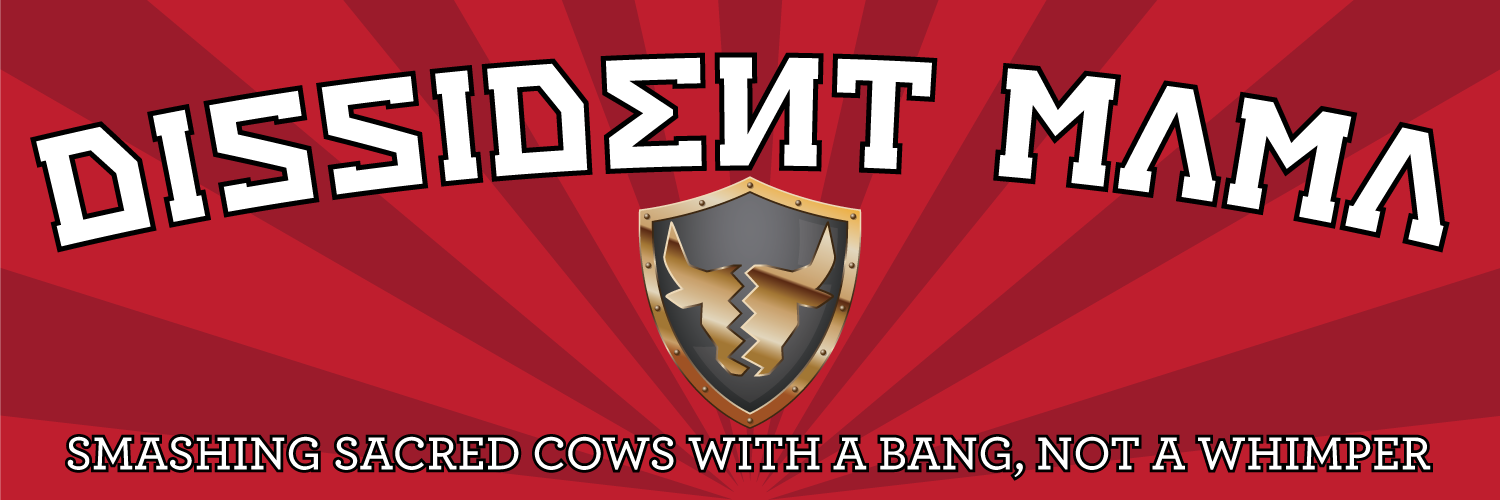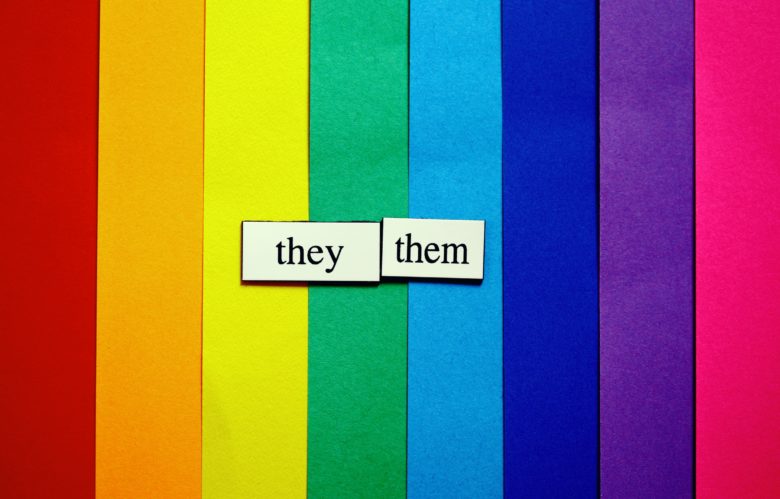By Earl Starbuck
As I grow older my appreciation for the wisdom of my parents increases. As the United States descend daily further into madness, I find myself torn between being glad they aren’t here to be angered and tormented by the tragedy, wickedness, and vicious idiocy of the times, and a strong desire to profit from their counsel and advice. They were both voracious readers and eloquent in speech, though my father’s loquaciousness clearly reflected his Appalachian roots.
Papa was the rare sort of man who could casually and accurately discuss the length and breadth of John Calvin’s Commentaries from memory while still employing double negatives without an ounce of irony. (A family friend used to joke that while he was a mere hillbilly, my father’s erudition had earned him the soubriquet of Hill-William).
Mama, on the other hand, was far more careful in her grammar, particularly her written words. On some issues she could be strangely pedantic – she lamented the dictionary’s recognition of “snuck” as a legitimate past tense for “sneak” to her dying day – but she was never snobbish or a show-off. “Ain’t” and “cain’t” were perfectly legitimate variations in the English language, fine examples of local dialect, and no one could convince her otherwise. Her concern for good grammar was born out of a desire to preserve clarity, both in thought and the conveyance thereof. Clear, accurate understanding and the ability to make oneself clearly and accurately understood were of paramount importance.
In the days of my boyhood, some 20 or so years ago, in the ancient, halcyon days of dial-up internet and the VHS tape, I got into a heated argument with some friends of mine over their use of the singular “they.” I vehemently objected to this grammatical error because, one or two days before, Mama had carefully sat me down and explained that substituting a plural pronoun in place of a singular was unacceptable, unclear, and grammatically incorrect. “He” and “she” were the singular forms and ought to be used when appropriate; “they” must be reserved for the third person plural.
Moreover, said she, the widespread adoption of the singular “they” marked a dangerous fundamental shift in the English language, one motivated by the sloppy thinking of modern feminists, whose insistence upon being inoffensive (or, rather, upon their being unoffended), was slowly destroying the clarity and preciseness of our spoken and written word. Why I was correcting my friends’ grammar, I do not know. Perhaps I was showing off. Perhaps I was genuinely concerned for them and thought that by proselytizing them I could do my part to help reverse the slow degradation of the English language. It might have been a little of both.
Regardless of my motives, my friends’ stout resistance to being thus enlightened convinced me to give up the fight. This was not a hill worth dying on. Besides, I had better things to do, like jumping in puddles or making-believe that I was Davy Crockett at the Alamo, coonskin cap and all. When I got home, I told Mama what had happened, emphasizing particularly my friends’ insistence that there was no harm in the singular “they,” that it was merely a means of being polite, courteous, and inoffensive. Mama wasn’t buying it. However my friends spoke and wrote, I must continue speaking and writing in the correct fashion. “Don’t worry about them. You’re not their parents. No one died and made you king. You focus on yourself.” That was that.
At the time I (sort of) saw her point, but I also thought she was making a mountain out of a mole-hill. After all, everybody knew there was nothing in it, no change of meaning indicated by the singular “they.” It was merely a means to avoid giving offense in an egalitarian era. The past few years have shown me, once again, that Mama knew better than I did. Using words correctly (or not, as the case may be) is exceedingly, vitally important. Good grammar is not just an exercise for school-children to pad out their day and help them improve (or, in my unfortunate case, lower) their GPA. Words are the means by which we convey ideas to one another, humanity’s primary means of conceiving thoughts and concepts.
Redefining words is a clever means of changing the way people think. The Soviets used this to great effect. So has the modern homosexual movement – just consider their appropriation of the word “gay.” They have chosen a moniker for themselves which intellectually distances their chosen sexual identity from the acts and desires which define that identity while simultaneously associating themselves inextricably with the concept of happiness, fulfillment, and gaiety, using the older meaning of the word for their own purposes even as they redefine it. It was a brilliant linguistic coup. So was the singular “they.”
Manhood and womanhood are rooted in the created order. We tend to conceive of them as being defined by certain roles, but those roles are merely a natural outgrowth of God’s created design. The roles He has ordained are congruent with our being as male and female, man and woman. Such is the Biblical understanding, though it is quite clearly not the understanding of mainstream America, or even of most churches. I believe the singular “they” has served an important role in this shift, that of causing people to think of men and women as fundamentally interchangeable. When one said or wrote “he” or “she,” the listener or reader automatically and necessarily understood what the speaker or author meant. The sex of the person being described was immediately clear.
The singular “they,” on the other hand, conveniently left out that little irrelevant bit of information. This intellectual fuzziness was the price one paid for speaking or writing inoffensively. After all, no polite person would want to give offense by suggesting that some roles are masculine and some feminine, to give offense to someone via the employment of a politically incorrect pronoun. Men and women are equal. The same. Interchangeable. “Anything you can do I can do better.”
Thus, the grammatical slippery slope set us on the road toward our present 50,000-foot societal freefall. It reminds me of the days of the French Revolution, when all people had to be referred to as “citisen” rather than “monsieur,” “madame,” or “mademoiselle.” (Incidentally, Mama had a great aversion to the term “senior citisen” because she thought it smacked of the Jacobins).
I should interject here that no sane person, myself included, denies the equal worth of men and women, nor can any Christian deny the equal sinfulness and redemptive potential possessed by both sexes. We’re sinners, we need Jesus, and being bearers of the Imago Dei, we are all equally valuable in the eyes of God.
That being said, it must also be acknowledged that equal value does not mean equality of function or purpose. If I walk into a store and purchase a toaster oven and a coffee-maker for $20 each, it is plainly obvious that they are equally valuable. If I attempt to brew coffee in the toaster, the ensuing electrical fire will swiftly make evident their inequality of function.
Similarly, it must be noted that rejecting artificial distinctions and inequalities is not the same as rejecting real, genuine, natural, God-ordained distinctions and inequalities. Believing in Jefferson’s aristocracy of merit does not necessitate rejecting God’s created order; refusing to call a monarch “Your Majesty” is not equivalent to calling a woman “Mrs.” or “ma’am.” Throwing the bathwater out is perfectly logical. Throwing out the bathwater, the baby, the bathtub, and jumping out after them is less reasonable.
The damage of the singular “they” wasn’t just limited to feminism, however. The fundamental interchangeability of man and woman has now gone a step farther with the transgender movement, so much so that a real documentary entitled What is a Woman is being praised by many and eliciting death threats from others. Fifty years ago, that would have been the name of a fake documentary in a Monty Python skit. When John Cleese is your civilization’s voice of reason, you know something’s gone awry. Choosing your own pronouns is all the rage these days. They/them is becoming a popular staple, though dem/demonself is gaining traction across TikTok.
A while back, a childhood acquaintance of mine declared himself a transgender woman (he had previously declared himself bisexual; prior to that, he sired two children). This past February, he shared to social media the following post from Lizzie the Lezzy:
Leaving aside the fact that Trinitarian doctrine specifies three persons in the Godhead, meaning there are multiple people who make up one God, just as one book can contain multiple chapters, notice the concluding argument – an appeal to the singular “they.” Oh, but it gets better. When I commented on this acquaintance’s post, making the three persons/one God observation previously expressed, he replied:
“So how do you refer to an individual whose gender you don’t know? The singular ‘they’ pronoun has always been the default for anyone whose gender is unknown: ‘Oh no, somebody dropped their wallet,’ or ‘I found somebody’s phone on the ground, I’ll take it to the lost and found so they can find it.’ They/them is a single pronoun.”
Reading this Orwellian paragraph sent a chill up my spine. The singular they has always been the default for anyone whose gender is unknown? Where the devil did my acquaintance learn that? Well, everyone knows it, of course. As The Party insisted in 1984: “We have always been at war with Eastasia.” The problem is that I happen to know for a fact that “they” was not always a singular pronoun.
One night in my boyhood, a couple of years after the incident recounted above, Mama and I were listening to an episode of the popular Christian radio drama Adventures in Odyssey. At some point in the episode, one of the characters asks her father what their family will do for supper that evening. His reply? “Everyone will just have to fend for themselves tonight.” Mama exploded in frustration, shouting at the radio: “Himself! Everyone will have to fend for himself! You didn’t say everytwo, you said everyone!” Then, I couldn’t fathom Mama’s fury, but I do now.
She was born in 1954 and raised on the plural “they,” as were her siblings, the youngest of whom was born in 1965. Not so very long ago, people knew the singular “they” was a new phenomenon. My, how quickly things change. It’s not just the interchangeability of men and women or a revolt against God’s created order and your own biology that’s at stake, no, no. The very nature of humanity is now up for discussion, with transhumanism and cyborganics being proposed as solutions to humanity’s problems. Bionic limbs for amputees are one thing; creating the Cybermen from Doctor Who is quite another. The line between machine and Man is being blurred. Virtual children are being proposed as a cost-effective and environmentally-friendly alternative to the real thing. Souls? Never mind those, we’ll program them in!
Of course, ultimately the problem runs a lot deeper than the singular “they.” The real problem is the postmodernist, relativist, and materialist assumptions underlying transhumanism, transgenderism, and feminism. And yet, it was their successful redefinition of the English language that enabled them to change people’s minds and fundamentally transform a society so quickly.
Did Mama foresee the full fruit of the intellectual fuzziness embodied by the singular “they?” Probably not in its entirety. Then again, she was a woman of great perception and insight, someone who knew that, as Richard Weaver famously declared, “ideas have consequences.” So do the words we employ to convey those ideas. Therein lies the problem of the singular “they.”






Comments
I agree with Pastor Doug Wilson (Blog: “Blog and Mablog”): The battle we’re fighting these days is for the dictionary, an idea closely related to Mr. Starbuck’s point in this essay. English is the language of Shakespeare, the King James Bible, Dr. Johnson, C.S. Lewis, Donne (et al); and in its older forms, Beowulf and the Canterbury Tales! I cringe when I hear many current abuses: “conversate”, “I had went”, “lead” when it ought to be “led” . . . the list goes on (Full Disclosure: I was an English teacher in another life, so maybe I’m a tad overly sensitive about some things!)! And the abuses of the so-called learned class, epitomized for me in a psychology text I was afflicted with in my master’s program some years ago, full of psycho-babble expression and nonsense!
There’s a difference in the beauty of expression and uniqueness in dialect, often lending itself to wonderful narrative, especially in the spoken form, but what we deal with most often these days is – f not born of sloppiness and ignorance – intentional abuse and manipulation of meaning in order to propagandize.
Okay, end of rant! And the essay by Mr. Starbuck was spot-on!
Author
I agree! Earl is such a stellar writer that he really laid it out well … and in plain ol’ English! 😉 I think you hit the nail on the head, as well: that there is “intentional abuse and manipulation of meaning in order to propagandize.” That kinda babble is what the “elites” are adept at pushing out into the ether in an effort to totally reconstruct not only culture but objective truth. Yep, the dictionary battle is indeed real and so vitally important.
Wonderfully intelligent and thought-provoking,as usual on this website ! Orwell noted particularly that one of the primary devices and stratagems of the Social Revolutionaries would be the attack upon language-usage,meanings,connotations and denotations. Words are the tools that the mind uses in its thinking process. Change word meanings – change thoughts,the thinking process and opinions.
[ I was formerly subscribed to your website,but,it seems that I’ve been ” dropped ” . When I try to re-subscribe,the online transaction never succeeds. I hope I haven’t been ” sent to Coventry ” , ” excommunicated ” , or something. Your site is well worth subscribing to. ].
isxliii@mymts.net OR luxsol250 @gmail.com
Author
So glad you enjoyed the guest post by my friend Earl. As far as the subscription goes, I’ll try to add you in myself manually. I haven’t done a newsletter in a while, but you should be getting the next one. Thanks for your positive comments as always. Cheers!
Author
I added in the gmail. My newsletter platform seemed to like that email address better. 🙂
Hill-William! What a classic!